Germany
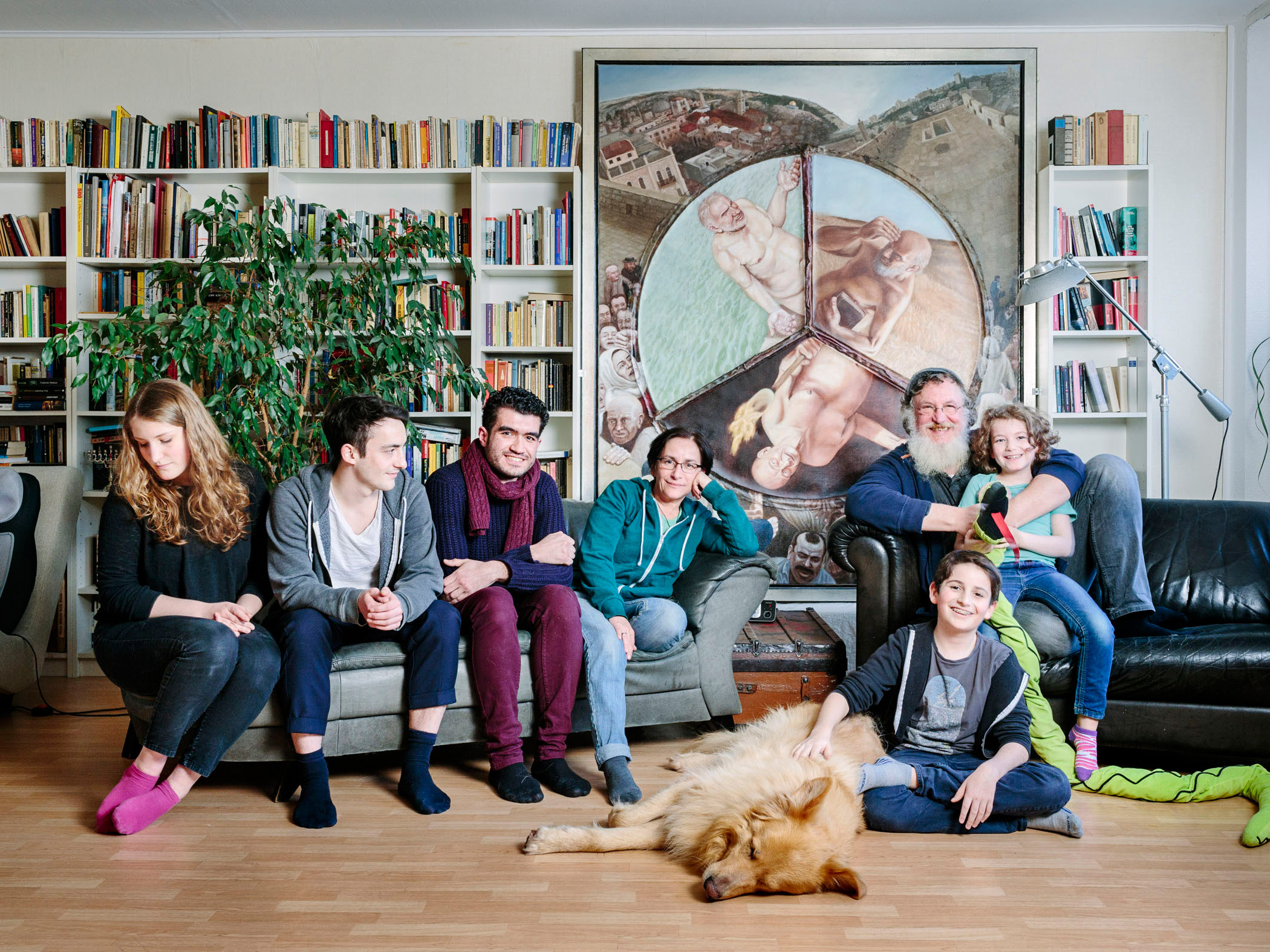
Syria to Germany
The Jellinek family host Syrian Muslim Kinan, a refugee from Damascus. Every Friday evening, the Jellinek family gathers for Shabbat (Jewish Sabbath) dinner to recite blessings over wine and good food in their Berlin home.
This year, their weekly tradition includes an unlikely guest: 28 year old Kinan, a Syrian Muslim refugee from Damascus, who has been living with the Jellineks since November 2015. He joins them most Fridays and often cooks Syrian meals that he has learned on YouTube. Kinan now introduces himself as a Berliner. He says he loves Germany and believes his fellow Syrians need to look forward more.
“People I meet are always comparing life in Germany to life in Syria. You cannot compare” says Kinan.
“If people just forget the past a bit and only look forward, I think integration will be faster and better.”
“Integration is not something that we should only ask from people coming into our country. We should ask this of ourselves too” says Chaim Jellinek, father and husband.
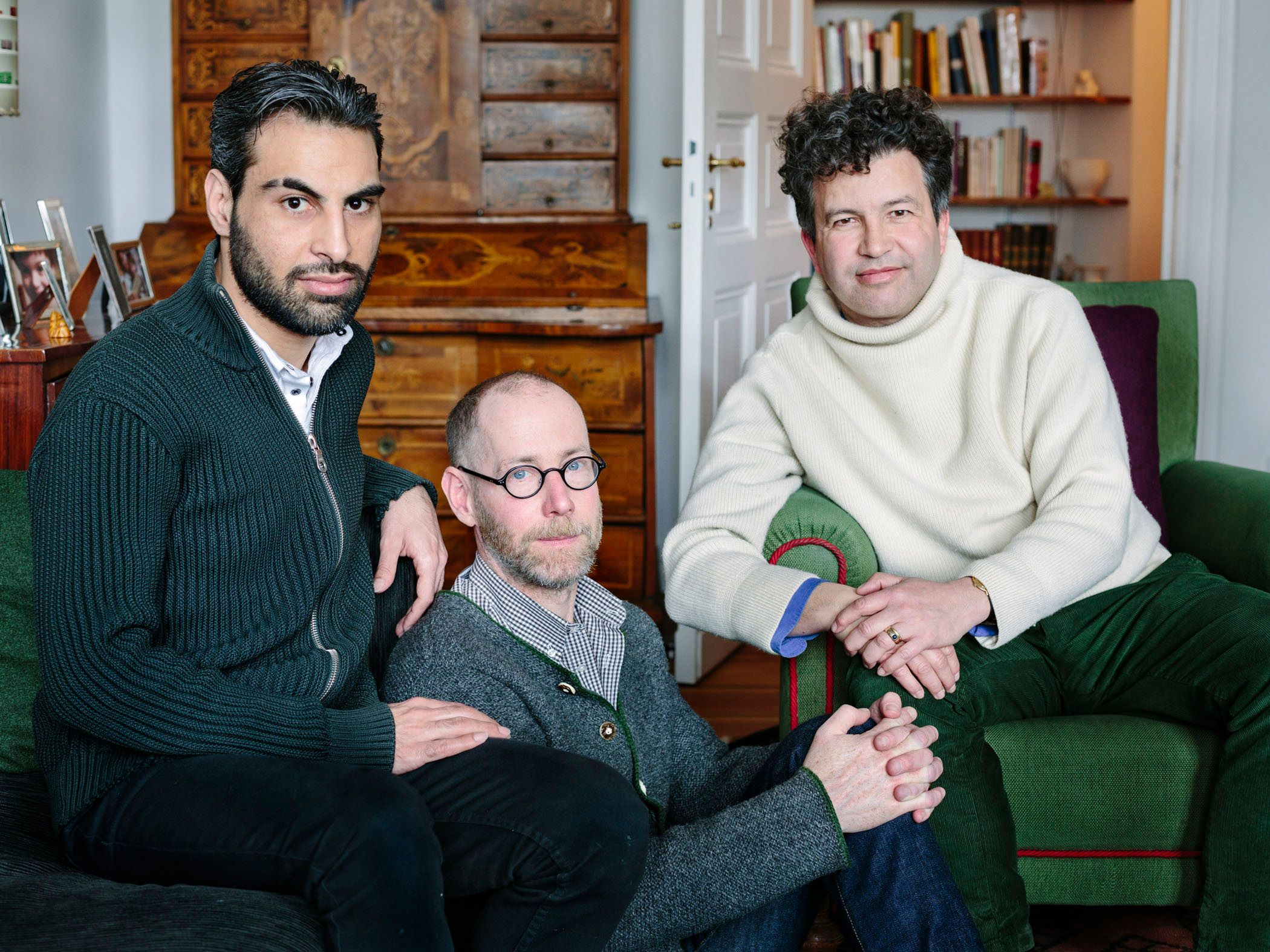
Syria to Germany
Wilhelm, Brian and Inas, a refugee from Syria, met through a chance encounter on a train just four days after Inas arrived in Germany. Ten days later, Inas moved in with the couple of 25 years, in November 2015.
Unsure whether it was the right train, Inas asked Wilhelm and Brian, sat nearby. With the help of Google Translate on their phones, the three struck up a conversation and then exchanged numbers.
In Damascus, Inas had run his own wedding dress making business. It was successful, employing sixty people. When he closed up shop to leave, he left with just a few bags. The hardest thing about arriving in Germany, Inas says, was not being able to read or understand anything around him. “Suddenly I was not a grown up man with a life anymore. I felt like a child.”
After a period of adjusting to each other, life together has settled into a comfortable rhythm.
“We had been wanting to help the entire time [the refugee crisis has been going on],” says Wilhelm, “but we didn’t really get a move on. And suddenly this opportunity was presented to us on a plate, the chance to help someone totally nice.”
“We knew we had to tell him we were gay before he moved in. But how?” Inas still only spoke a few words of German and English. “So we showed him our wedding pictures. He shook our hands and said ‘no problem’, as he says about anything.”
“It’s been like real family life,” says Wilhelm.
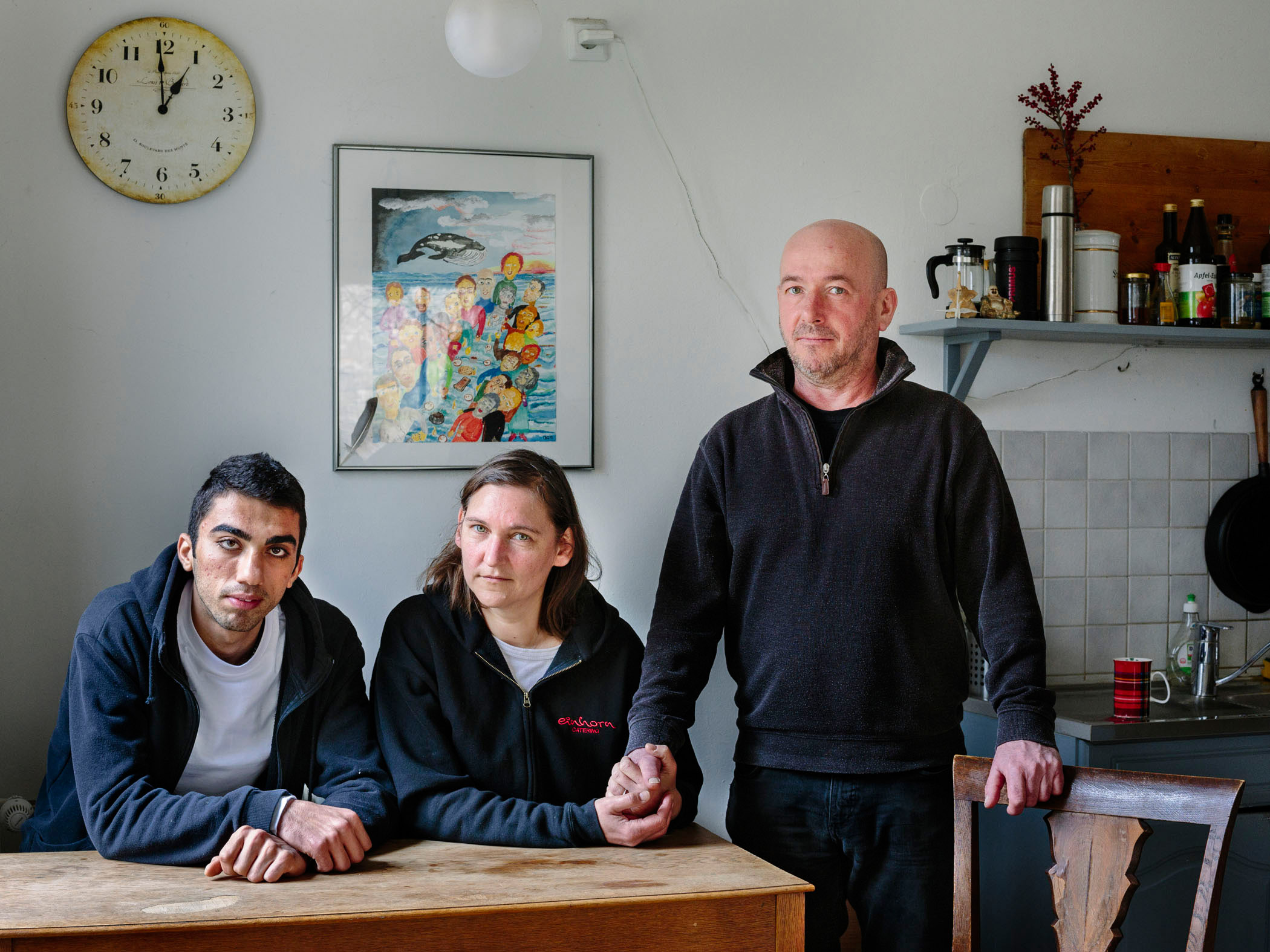
Syria to Germany
Newruz a refugee from Syria lives with Claudia and Tobias in Berlin. At the beginning of their friendship, Newruz (20) couldn't stay with Claudia and Tobias in Berlin for more than a few days at a time. The Kurdish Syrian from Homs arrived in Germany in July 2015, but was registered and housed in a refugee centre in Meissen in Saxony, Tobias' hometown.
After news of repeated arson attacks on asylum centres, Claudia and Tobias decided they wanted to do something positive. On their next visit to Tobias's family home, they organised a guided walk for residents of the local refugee centre, to explore the nature areas in and around Meissen. Newruz joined in and they struck up a friendship. Claudia and Tobias, who both grew up in former East Germany, escaped to West Berlin in the 1980s, Claudia just two years before the Berlin wall came down.
“Berlin and Homs are very similar,” Says Newruz. “In terms of food, cycling around the streets. Maybe the markets are a bit bigger here.
Meissen was very different, but Berlin is like my city and I have a few friends here now.”
“At the end of the day, we are all refugees,” says Claudia with a smile.
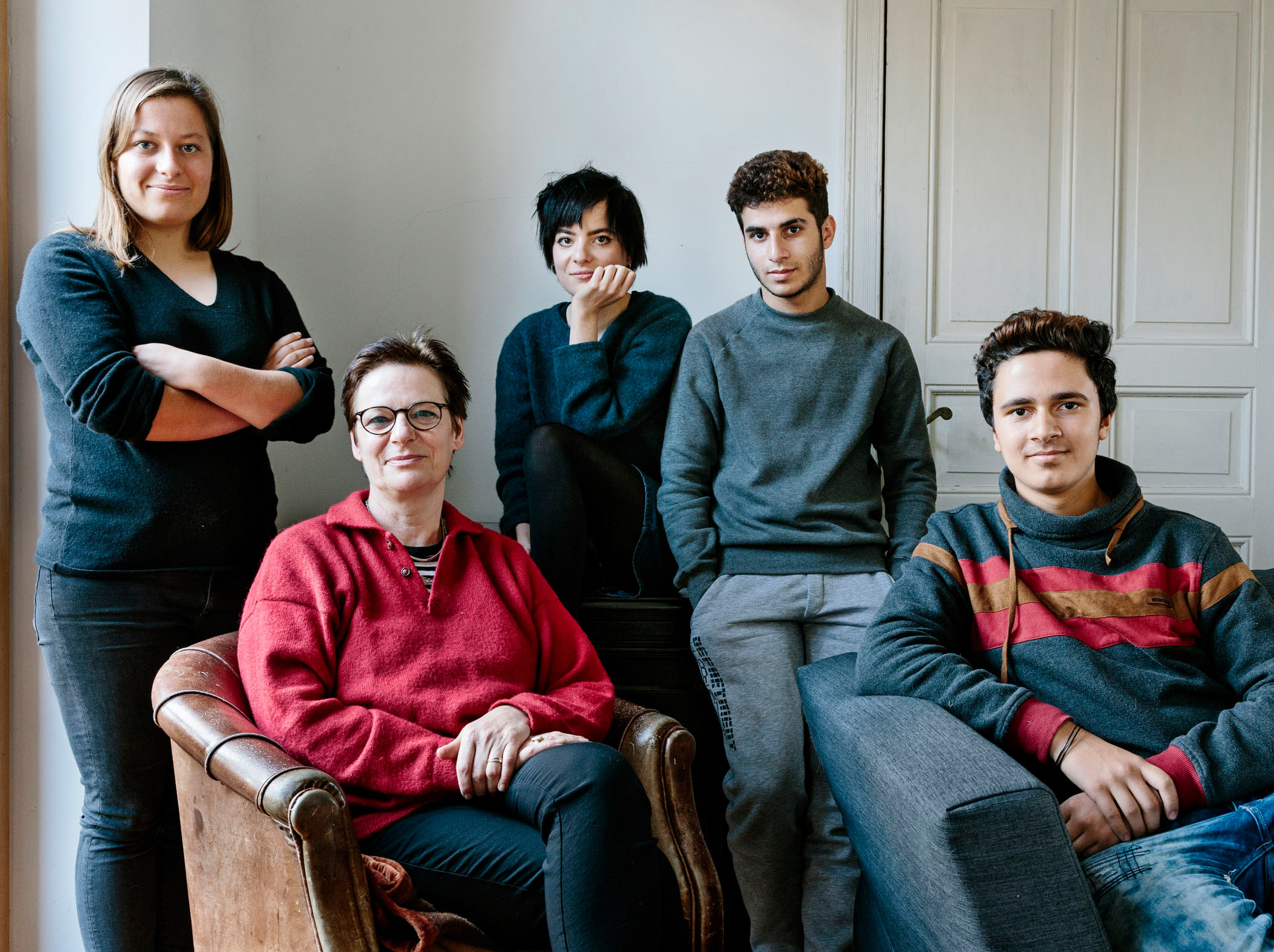
Syria to Germany
Sabine Waldner with her daughters, Charlotte and Miriam, host two Syrian refugees, Juan (16) and Mohammed (16), classmates from Damascus, at their home in Falkensee.
Juan and Mohammed have both started studying at the local secondary school. In August 2016 they joined a school trip to Kiel on the Baltic Sea coast, their first trip out of Berlin since arriving. The next year they were due to take their school exams.
Charlotte says: “It’s amazing how confident they have become since they’ve been here. They were so shy at the beginning. They are so full of surprises.
We learn so much from each other and we enjoy ourselves.” Miriam, a budding photographer, says: “When they don’t clearly say what they want or need, because they don’t like to cause any inconvenience, it can be difficult.
“But it’s getting better as they are starting to accept that we see them as part of the family.”
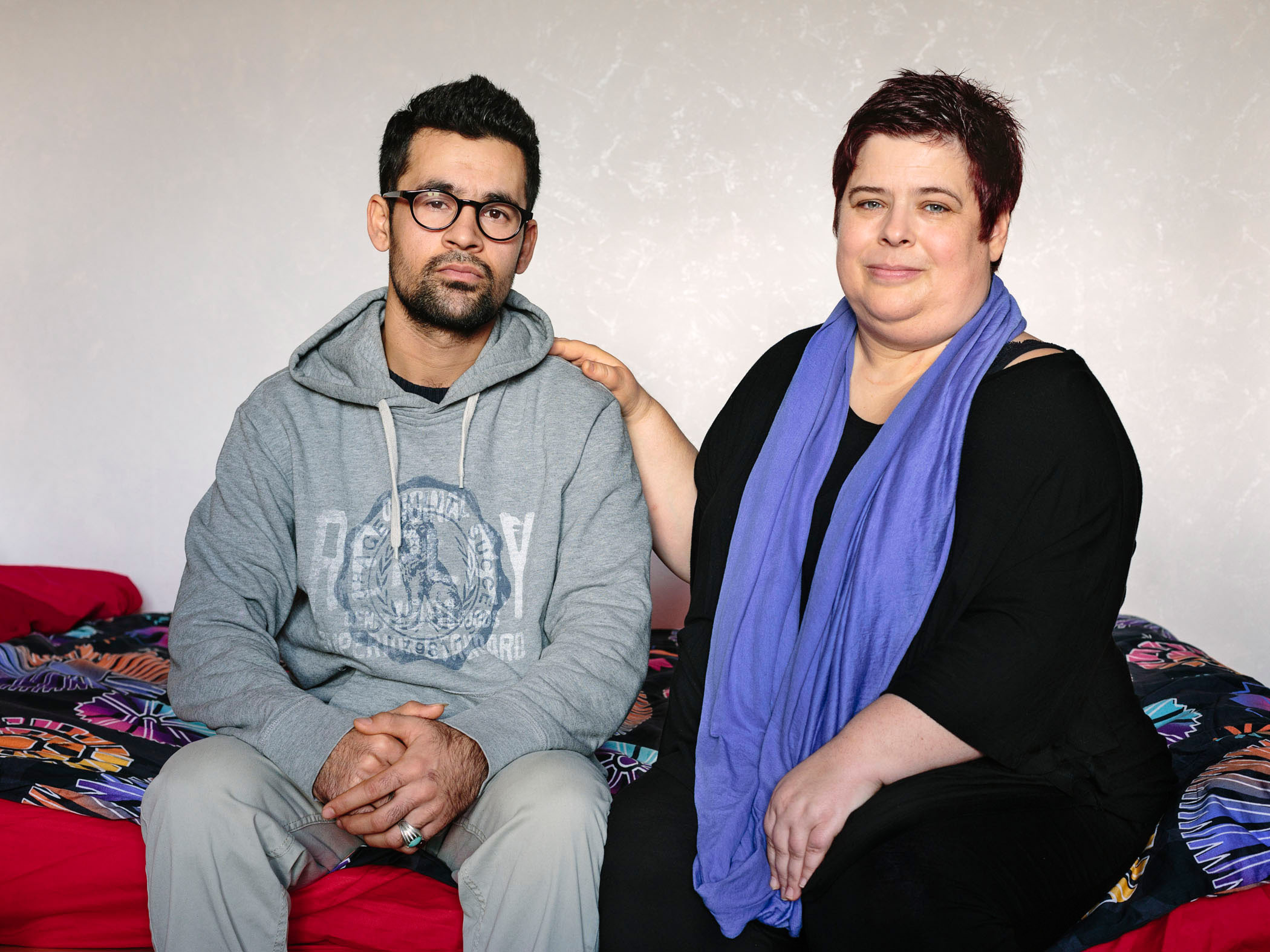
Afghanistan to Germany
Uta (44) hosts Hamid, a refugee from Afghanistan, in a small studio apartment in Marzahn, a sprawling estate of high-rise blocks in east Berlin.
It has been challenging for Uta to host Hamid. Whenever Uta added Hamid's name to the letterbox it was quickly removed. Instead of numbers, letterboxes throughout Germany carry the name of the legally registered tenant on them, which means that it's hard to receive post if a name is missing. One of her neighbours told Uta "we don't want foreigners here" but Uta says she fights this kind of behaviour.
“My neighbours have not been the most welcoming” says Uta. “I had to end friendships with people who didn’t accept what I was doing. It was a shock to see how mean and small minded towards others people can be. It’s exhausting. You really hit the edges of your energy and patience.”
But on the positive side, Uta says, “I’ve never learned so much in my life since having Hamid here, about religion, food, and other cultures.”
When challenged by neighbours and acquaintances about Hamid she says “He’s my son – you just have to get used to it.”
